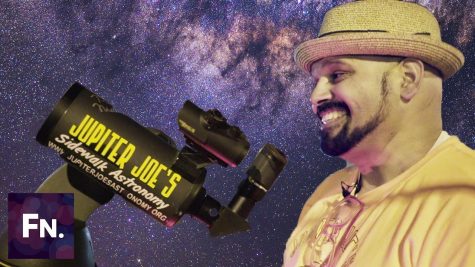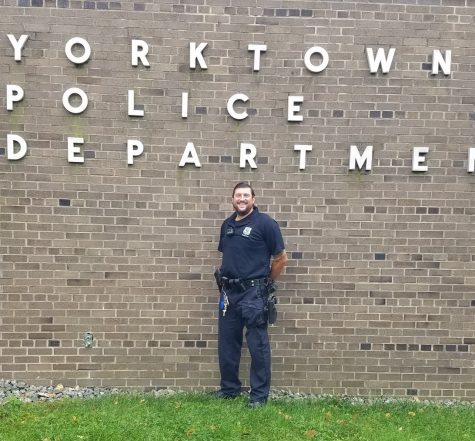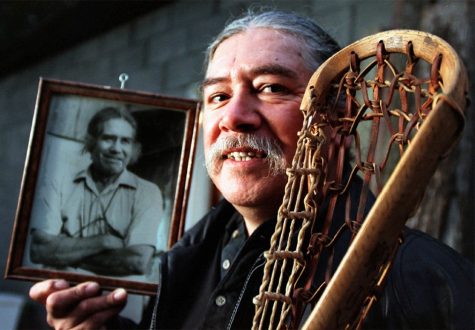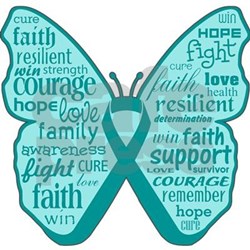Marchers Declare It’s Time to Stand Against Gun Violence
“We’ve been through this. We’ve grown up with this. We know what is happening. We need a change.”
Megan Bonner stood before more than 150,000 people gathered along the west side of Central Park. Roughly a dozen cameras broadcasting and recording her every word for an even greater number to watch. The sniffles and pauses that interlaced her recount of the shooting that left 14 of fellow classmates and 3 staff members dead 39 days earlier at Marjory Stoneman Douglas High School in Parkland, Florida had become attempts to hold back tears.
“I was 15 years old when I knew Nick Cruz wasn’t okay,” she said of the shooter who killed 14 of her classmates. “He was stalking and threatening physical harm to my friends and nothing was ever done or reported,” her voice broke on the final word.
She started to speak again. Her voice still shook as she remembered her friend, Aliana Petty. She was called “Junior Petty” and “Little Petty,” by Megan and Little Petty always had a smile on her face. “I remember seeing on Snapchat she was missing and I kept thinking that she would be okay,” Bonner sniffled again as she spoke, before saying she had learned the following morning Petty had been one of the students killed. She was 14 years old.
“Adults failed us and now 17 people are dead,” she lamented. Her voice regained strength to declare she wanted to see change.
The crowd applauded her declaration. A declaration, a speech, and tears before a crowd a three hour flight from her school on a day, she thought before the shooting, would have been spent at home in bed playing a videogame on spring break.
“We are here to show our voice matters, even though, we’re young we have opinions and we should be heard,” said Suzy Shailesh, a 17 year old student from Denville, New Jersey who was joined by two of her friends. Shailesh, Riya Gupta, and Esha Jain were on a field trip in New York City the day of the shooting. They remained unaware of the unfolding events in Florida until they came back.
This shooting was different for the three high school students who are old enough to remember the shooting at Sandy Hook Elementary that killed 20 young children and shootings that have come after.
It was the first relatable shooting, where they were in high school, they took the same classes we took,” Jain said of the similarities between them and the students of Marjory Stoneman Douglas High School. It was not just their age, but the same classes they had taken. Shailesh mentioned one student who was in AP Chemistry. “The fact that I took AP Chem last year just hit me. I was class in that could have been me,” she repeated again it could have been her.
For the three students the shooting and response to it have push for her from observer to active in raising her voice. Shailesh believes it is wrong of adults to dismiss them as uniformed. They have grown up in a generation where social media and their phones have given them the ability to learn about what is going on in the world and pay attention to the news in more ways than their parents did growing up. An ability they have used to form opinions and are ready to turn them into action.
“I just want to get as involved as possible because we’re the next generation,” said Gupta who participated in the Women’s March this year. What is different from the Women’s March she said is it is students that are leading now.
Tali Natter and Lola Tung, both residents and students of New York City, agree with Gupta about why they want to be involved this time.
“This event particularly for both of us sparked something in us to really take action, because it’s a student movement,” Tali Natter, 16 years old, said before the rally began.
A sentiment reinforced by Tung’s inclusion as one of the several speakers in their teens. While she has become more politically aware since she began high school and attended the 2018 Women’s March. She points to the shooting that “opened [her and Natter’s] eyes” to how gun violence can occur anywhere. A realization that has made them determined to be more involved.
Both Natter and Tung took part in the National School Walkout that saw students from across the country walkout out of their class and leave school for 17 minutes to honor the lives of 17 people killed at MSD and protest for strict gun control laws. While, some students were discouraged or prohibited by their school officials from walking out, such as, those attending Schuylerville High School in upstate New York. Natter and Tung’s school was supportive of students walking out. “That just showed the power of students. That was purely students and it was really inspiring and it shows this is our movement,” expressed Natter.
Her point added to her confidence that now they have started they are not going to stop.
“Young Americans should not be written off just like when I was their age protesting the Iraq-Afghani War,” said Loretta Oberheim, who has no doubt the young people demonstrating that day would make change like she did.
Oberheim’s decision to march and protest motivated again by the same reason. She had lost a friend serving in the military in the Iraq and Afghanistan Wars on February 14th, 2018 she had lost another friend at Marjory Stoneman Douglas High School. “I felt it was only right to come back out and stand up because that individual was not able to stand up.”
Her friend was Aaron Feis. The assistant football coach of the Eagles who died a hero acting as a human shield protecting students from the bullets fired at them.
Oberheim and her parents moved to Coral Springs, a city only minutes south of Parkland, before her junior year. Her parents still reside today in Coral Springs. Nikolas Cruz was captured a quarter mile from their home.
A move to a new school that was not easy for her she recalled, “I did not have any friends and [Feis] was one of the first people to defend me and I really appreciated that.” Feis and Oberheim met a year after he graduated at a football game. Oberheim graduated from MSD in 2002. The same year Feis returned to the school to begin his over 15 years as a coach.
A coach for students, a school, and a community that he loved. “When I heard how he had passed it didn’t surprise me he was a very selfless person to the end.”
Oberheim learned of the shooting at her office in Manhattan. A co-worker had mentioned to her there was “another school shooting” and it was in Florida. Her first reaction was to ask where. They responded Parkland and she knew. “My heart sank cause I knew there was only high school in Parkland and I knew it was my school.” The building the shooting had occurred in had been constructed a couple years after she graduated. A different school, but same classroom setup, “I felt like I was in the classroom with those kids.”
She said it is the values and character MSD encourages as to why the students of her high school alma mater are speaking out. “It does not surprise me that these students have come forward to be activists. This is what the school breed,” she said as her voice slightly shook every few words.
As she talked before the rally began, she was adamant that this would not be the end of her involvement. “I will do absolutely anything in my power to not allow the 17 evils to be forgotten,” said declared whether it meant taking action to make change on the local to the federal level.
The change demonstrator’s like Oberheim and Natter seek has began on the state and federal level. Two weeks before the march, Florida Governor Rick Scott signed into the law the Marjory Stoneman Douglas High School Public Safety Act. The new law comprises several provisions, including a required three-day waiting period for most gun purchases, requires any person purchasing a gun be at least 21, and $67 million for the Coach Aaron Feis Guardian Program, a voluntary program where certain school personal, but not full-time educators can carry a gun in school. Oberheim expressed doubt the program was the right step forward, “The fact they named that guardianship after Aaron that part of the law I don’t agree with.” She added, “Teachers have enough on their plate. Taking a life is not one of them. They are not a soldier. They are not a police officer.”
While, Florida passed wide-ranging legislation within a month of the shooting in Washington D.C any action has stalled or is moving at a trickle pace. The late Friday afternoon on the day before the march, Attorney General Jeff Sessions announced the Department of Justice is proposing new regulations clarifying, “bump stocks fall within the definition of ‘machine gun’ under federal law,” which are banned under federal law. A good first step, even more though, it is further evidence students are making change happen said Natter.
A movement for change she said has no plans of slowing down or stalling, “We’re not stopping here. We’re not gonna stop until we’re satisfied with the new regulations.”












